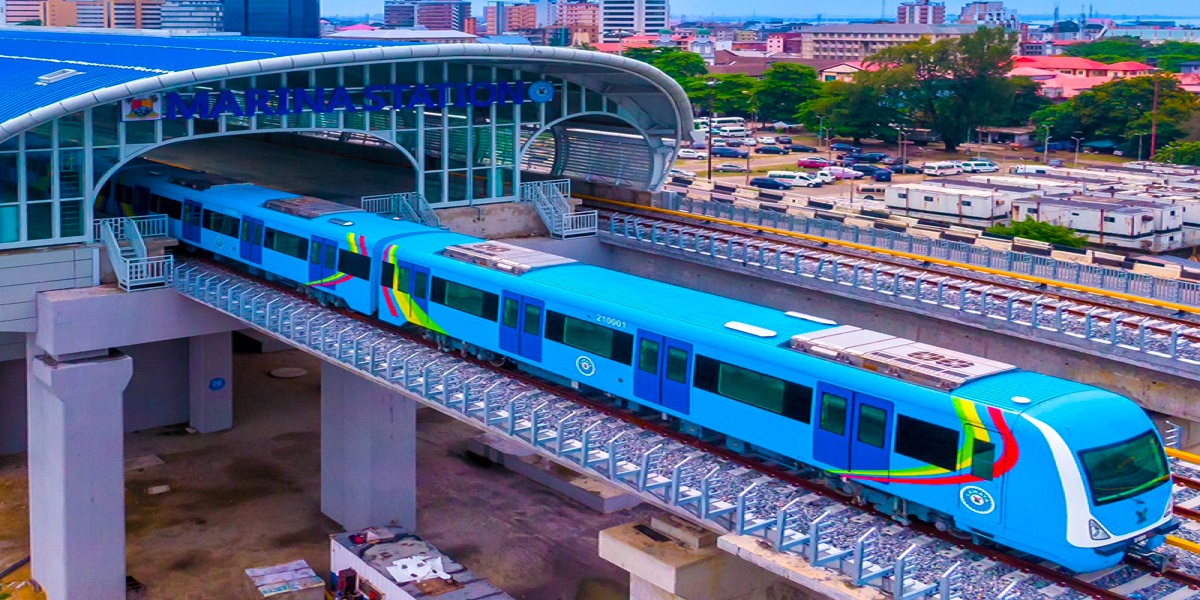Auto
The Economic Consequences of Informality in the Transport Sector

By Timi Olubiyi, PhD
The new year is here, it is my prayer that 2022 will be a profitable year for all individuals, businesses, and households. Our new year resolutions at every level must include enhancing productivity and improving performance.
Without a doubt, transportation is central to this and can be an effective indicator of performance in any economy, business, and quality of life. Simple things like getting to work, school, meetings, appointments, trade facilitation, transacting, moving cargoes, travels, and even delivery of social services such as rescues during emergencies can become extremely difficult with poor transportation.
In fact, business decision-making and access to everything for economic progress hinge strongly on effective transportation I must say.
Certainly, every nation regardless of its population size, level of development, and industrial capacity can benefit from an efficient transportation network be it road, waterways, rail, or air transport. But on the contrary transport poverty exist where inefficiency in all transportation modes is prevalent within an economy. Such is the case in many African countries and cities, including, Benin, Ethiopia, Nigeria, Uganda, Tanzania and Lusaka, Zambia, and a host of others.
In many of the developed countries, transportation plays a significant role in the ease of doing business and the government plays an integral role in the implementation and administration. A recent visit to the United Kingdom (UK) and the United Arab Emirates (UAE) strongly indicated that, where there is efficient transportation and fewer traffic congestions, the economy and businesses are positively impacted.
From my observation in the two countries, public transportation which includes buses, taxis, water ferries, trains, trams, and the metros are regulated adequately by the government and it is not completely private-sector driven, making it so efficient and reliable. Apparently as noted, where private companies are involved in the operations, it is usually on an agreed model such as the Public-Private Partnership (PPP) model.
Ironically, across many African cities particularly in my country Nigeria, the unreliability of the transport system has continued to limit access to services, business, trade facilitation, the attraction of foreign direct investments, and also in the revenue drive of the government.
The pilot region of observation is Lagos State the economic centre of Nigeria, where transport operation is largely run informally by private individuals. This makes the services undesirable because of the inefficiencies that exist due to under-regulations.
For instance, car reliance keeps compounding in the State because of poor demand responsiveness of public transports, commuters then tend to avoid the long queues and waiting hours at bus stops, and the associated risk of using public minibuses called Danfo. But the result is usually wastage of productive hours by many commuters in traffic congestions.
Sometimes, bike taxis which are usually referred to as Okada are considered for mobility. Though this trend depicts transport poverty, it is largely heightened by the informality of the public transport sector, widespread unemployment, lack of worthiness of the available transportations, lack of adequate maintenance system, giving rise to the high traffic congestion on the roads and expensive transport fares.
Basically, the over-reliance on one mode- road transport and over-exposure to informality are the issues that are mainly slowing down growths in the sector. As widely noted, private participation, with little or no government entry barrier promotes informality. Such as the operations of the non-conventional ferry on the waterways, motorized tricycles, and the Okadas and Danfos within the hinterlands. Sadly, these are the only affordable services to the poor despite the widespread insecurity and risks.
In the UK particularly in London, a mobile application (app) offers most of the information about the public transport system, and regulations in the city including fares, routes, and time of arrivals and departures. That means if you must operate government has to know, this procedure reduces informality. In both UK and UAE, the logistics and business supply chains are effective because they rely on the transportation infrastructures and strict regulations available and that reduces the cost of business operations.
For most public transportation closed-circuit television (CCTV) is installed for safety and security businesses. Transport cards are also used on most of these public transports for ease of payment, this offers a hassle-free environment for the populace, visitors, and tourists. Strict regulations also avail the government the opportunity to monitor many of these services, ensure accountability on the part of the operators, and for government to monitor service trends.
For instance, in UAE just in a year, there were around 600 million rides on public transport (in a city of 3 million population). This is an indication of the rate of conversion to the public system by visitors and residents in a region that used to be primarily private vehicle driven.
This is an indication that individuals move with ease and travel on public transportation because they are timely, affordable, and adequately available. With such a system in place, businesses can make projections and enjoy a reliable supply chain, with no uncontrollable logistic issues. With this experience, I have a strong conviction that there is a direct relationship, between the development of the transport system and the ease of doing business in any country.
In fact, without a doubt, it is easy to conclude that transportation can be a useful criterion for measuring development in a country. Because if transportation is made efficient it must impact positively on the economic development of a country and also improve the performance of the businesses in that country. It is no brainer or magic such a system can happen in Nigeria, with improved regulation, reduction of informality with sufficient investments in the sector.
Even though in Nigeria it has been a situation of hectic traffic congestion even at the ports, poorly maintained roads, overstressed railways, underutilization of the waterways, long hours of waiting to have access, inadequate infrastructure, there should be a concerted effort to raise the percentage of public transportation, expand the modes, and offer stricter regulatory regime.
For safety and security reasons, the ease of entry into the sector by informal transport operators needs to be reviewed because it appears that is majorly the issue. Government entry barriers are obstacles that can make it difficult for an individual or business to operate in the sector, such as what is available in the aviation industry.
It is important to improve policies and regulations in transport services, expand transportation networks to achieve large-scale economic growth, and modernization. Though it can be argued, effective transportation can alleviate the level of poverty in the country. Because the current chaotic congestions on the roads and in the ports are essentially aiding market failures and hindering the ease of doing business in the country which are enablers of business closures and impoverishment.
Hence, when transportation is effective and efficient, businesses will be able to make adequate projections, improve production, produce faster, reach consumers faster, attend business meetings promptly and all these stimulate the economy, create jobs, and can reduce poverty.
Truthfully, the transportation sector can offer the needed diversification of the revenue generation drive of the government. I am aware that the current public debt of the country is around N38 trillion, according to figures released by the Debt Management Office (DMO) and this is mainly due to revenue challenges. In my opinion, an effectively regulated and efficient transportation system can be revenue-yielding for the government.
In conclusion, it is also important to note that an improved transportation mode- air, rail, water networks and the expansion of road networks can increase economic productivity, cut the cost of production, and enhance the ease of doing business in the country. For thinkers, the issues mentioned above can adequately present mind-blowing opportunities, particularly for investors and businesses. To this end, businesses and individuals can have better mobility, access and livelihood. Good luck!
How may you obtain advice or further information on the article?
Dr Timi Olubiyi, an Entrepreneurship & Business Management expert with a PhD in Business Administration from Babcock University Nigeria, is a prolific investment coach, seasoned scholar, Chartered Member of the Chartered Institute for Securities & Investment (CISI), and Securities & Exchange Commission (SEC) registered capital market operator. He can be reached on the Twitter handle @drtimiolubiyi and via email: dr***********@***il.com, for any questions, reactions, and comments.
Auto
LAMATA to Boost Red Line Rail Capacity With 24 New Coaches

By Adedapo Adesanya
The Lagos Metropolitan Area Transport Authority (LAMATA) has announced plans to deploy 24 new coaches to boost the capacity of the Red Line rail by the third quarter of 2026.
In a Wednesday statement signed by its Head of Corporate Communications, LAMATA said it acknowledged recent reports and social media footage highlighting passenger discomfort on the Oyingbo-Agbado train service due to technical issues affecting the air conditioning system.
It noted that the plan to provide the 24 new coaches forms part of its long-term strategy to enhance capacity, comfort and service reliability.
“We sincerely apologise to our valued commuters for the heat and inconvenience experienced during their journey.
“As part of our long-term strategy to enhance capacity, comfort, and service reliability, LAMATA is pleased to announce the expected delivery and operationalisation of additional rolling stock by the third quarter of 2026.
“The new acquisition will comprise three train sets, each with eight coaches, bringing a total of 24 additional coaches to strengthen the existing fleet and improve passenger experience across the Red Line corridor,” the organisation stated.
The statement further revealed that the agency has deployed a technical team to diagnose and resolve the cooling system’s failure to return affected coaches to optimal operating conditions.
“In the immediate term, our technical and engineering teams have been deployed to diagnose and resolve the root cause of the cooling system failure. Restoration works are ongoing, and efforts are being intensified to return the affected coaches to optimal operating condition as swiftly as possible.
“LAMATA remains firmly committed to delivering safe, efficient, and world-class rail services. We continue to take proactive measures to minimise technical disruptions and improve overall service quality.
“We appreciate the patience, understanding, and continued support of the public as we complete these essential repairs. The comfort, safety, and well-being of all passengers remain central to our operations,” the statement concluded.
Auto
inDrive Ranks Second in Ride-Hailing App Downloads Globally

By Modupe Gbadeyanka
A global mobility and urban services platform, inDrive, for the fourth consecutive year, has emerged as second in ride-hailing app downloads in the world.
In its latest report, a leading market intelligence firm, Sensor Tower, also disclosed that the company ranked fourth globally in the travel category for downloads, up from fifth place in 2024, reflecting growing engagement as it continues its transition into a super app.
It was also revealed that inDrive was ranked number one in the travel category by downloads in nine countries, with newcomers to the list including Peru and Pakistan, and placed among the top three most downloaded travel apps in 22 countries.
The chief executive of inDrive, Mr Arsen Tomsky, while commenting on these feats and others, said the continued rise underscores a broader shift toward multi-service platforms that deliver everyday value while remaining closely aligned with local market needs and user expectations.
“Maintaining our position as the world’s second most downloaded ride-hailing app for a fourth consecutive year is a powerful validation of the value inDrive delivers to its users every day.
“This recognition reflects the trust people place in our platform and the continued dedication of our global team.
“As inDrive evolves into a super app, we remain focused on our core principles of fairness, transparency, and user choice, while expanding access to services that make a meaningful difference in people’s daily lives,” Mr Tomsky said.
The latest report highlights that super app ecosystems are becoming a key growth driver for the ride-hailing industry, particularly in emerging markets where users are engaging more frequently and across a broader range of use cases.
The inDrive app – defined by its peer-to-peer pricing model that allows drivers and riders to agree on a fair price mutually – has now been downloaded over 400 million times since its launch. Available in 1,065 cities worldwide, it has facilitated more than 8 billion transactions.
The platform operates across 48 countries, driven by strong global adoption, including growing momentum across Africa and continued growth in Nigeria.
In 2025, inDrive accelerated its transition into a super app, expanding beyond its core ride-hailing offering to offer additional services, including intercity transportation, courier, grocery delivery, and financial services.
By expanding its offering and meeting more of its users’ daily needs, inDrive is driving deeper and more frequent user engagement – an approach that underpins its continued global momentum.
Technology under the hood, including AI and advanced analytics, plays a significant role in supporting this evolution by enabling greater personalization and more seamless user experiences.
From using machine learning to fix mapping gaps and deliver more accurate ETAs, to predictive analytics that anticipate user needs and personalize service offerings, these capabilities drive innovation. In contrast, ensuring users retain complete control over pricing decisions is consistent with inDrive’s commitment to fairness through choice.
Auto
GoCab Receive $45m to Scale Ethical Mobility Financing Platform

By Dipo Olowookere
A funding package of up to $45 million has been secured by a mobility fintech firm, GoCab, to scale its ethical mobility financing platform across emerging markets.
A statement made available to Business Post disclosed that the funds comprise $15 million equity and $30 million debt, with the equity round co-led by E3 Capital and Janngo Capital. Others involved in the transactions were KawiSafi Ventures and Cur8 Capital.
GoCab operates a drive-to-own mobility fintech model that provides credit to gig-economy workers to buy their own car, bike and others in emerging markets.
It offers vehicles in drive-to-own programmes, mobile phone BNPL, motorbike financing for delivery couriers, and other value-added services through a single digital platform powered by proprietary technology.
With this financing support, GoCab plans to expand its operations and fleet, aiming for 10,000 active vehicles and $100 million in annual recurring revenue within the next 24 months.
Across five markets, GoCab now generates over $17 million in Annual Recurring Revenue (ARR) after just 18 months of operations and is on target to reach $50 million by end of 2026 and $100 million in 2027.
The company was established in 2024 by Mr Azamat Sultan and Mr Hendrick Ketchemen to address the limited access to ethical financing and vehicle ownership for gig-economy workers in Africa.
By combining mobility, technology, and inclusive finance, the organization enables drivers and delivery couriers to generate stable income while progressively gaining ownership of their vehicles.
By 2025, GoCab had taken a leading position in several African markets, supporting thousands of drivers and contributing to cleaner, more sustainable urban mobility systems.
“Transforming lives and improving the daily reality of thousands of families is the mission we have set for ourselves. We believe that capital can and must become a powerful force for transformation across Africa and emerging markets,” Mr Ketchemen said.
His counterpart, Mr Sultan, disclosed that, “For us, GoCab is about restoring dignity and opportunity through ownership.
“Across Africa, millions of people are locked out of both mobility and finance. We saw how capital was flowing everywhere except to the people who actually needed it to work.
“This round allows us to scale responsibly expanding access to fair, ethical financing while accelerating the transition to electric mobility, lowering carbon emissions, and building a more inclusive and sustainable future in close alignment with our investors.”
One of the investors, Mr Vladimir Dugin of E3 Capital, said, “The shortage of vehicles and the high cost of transportation remain two of the most pressing challenges across Africa. GoCab is addressing both head-on through a data- and technology-driven platform that expands access to mobility while improving efficiency at scale.
“Its rapidly growing EV fleet lowers costs for riders and drivers alike, while significantly reducing emissions. We are proud to support GoCab as it builds the leading pan-African mobility platform for the future.”
“We are proud to lead GoCab’s $15 million equity round, catalysing over $30 million in debt financing. We were impressed by their vision, their world-class team, and the quality of their execution.
“With this funding, GoCab now has the scale to deploy thousands of productive vehicles, each supporting a full-time income.
“With a clear operational roadmap toward 10,000 active assets and $100 million in recurring revenue, GoCab illustrates how ethical financing can translate into tens of thousands of decent jobs, household resilience, and sustainable growth at scale,” the chairman of Janngo Capital, Fatoumata Bâ, stated.
Also, a partner at KawiSafi Ventures, Mr Marcus Watson, said, “GoCab is building critical infrastructure for climate-smart mobility and the future of work in emerging markets. The combination of disciplined execution, strong unit economics, and a clear impact thesis makes GoCab a compelling platform for sustainable growth.”
-

 Feature/OPED6 years ago
Feature/OPED6 years agoDavos was Different this year
-
Travel/Tourism10 years ago
Lagos Seals Western Lodge Hotel In Ikorodu
-

 Showbiz3 years ago
Showbiz3 years agoEstranged Lover Releases Videos of Empress Njamah Bathing
-

 Banking8 years ago
Banking8 years agoSort Codes of GTBank Branches in Nigeria
-

 Economy3 years ago
Economy3 years agoSubsidy Removal: CNG at N130 Per Litre Cheaper Than Petrol—IPMAN
-

 Banking3 years ago
Banking3 years agoSort Codes of UBA Branches in Nigeria
-

 Banking3 years ago
Banking3 years agoFirst Bank Announces Planned Downtime
-

 Sports3 years ago
Sports3 years agoHighest Paid Nigerian Footballer – How Much Do Nigerian Footballers Earn






















